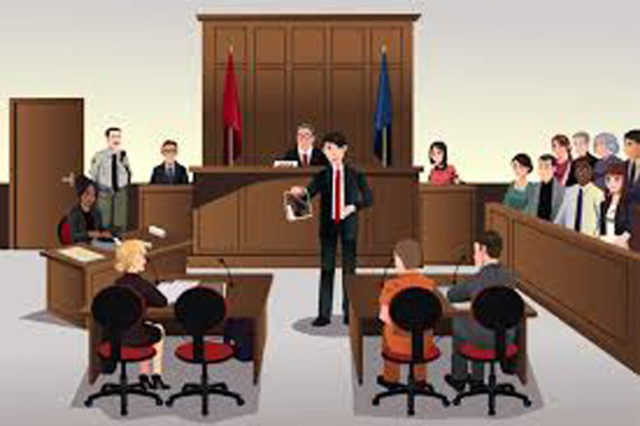INTRODUCTION
India has a well-established Criminal Justice System which is primarily governed by three acts, namely 1) Indian Penal Code, 1860; 2) Code of Criminal Procedure 1973; and 3) Indian Evidence Act, 1872. The Code of Criminal Procedure, 1973 (hereinafter “CrPC”) is a procedural law which provides the mechanism of the criminal trial to be conducted on the basis of substantive criminal law i.e. Indian Penal Code, 1860 (hereinafter “IPC”) and other statutes. The primary features of the criminal justice system are:-
- the trial must be fair
- there must be no delay in investigation and trial
- there must be fair deal to poor & vulnerable sections of the society
On receiving information about a cognisable offence, police register FIR and commence investigation. On completion of investigation, if the police feel that a prima facie case is made out, it will file a charge sheet before court. The Magistrate has to pass necessary orders on final reports and charge sheets. Depending on the order of Magistrate the case will be either dropped or put forwarded for charges and trial.
The word ‘trial’ is nowhere defined in CrPC. Trial of a case begins after the farming of charges and end with the acquittal or conviction. Hearing is basically oral arguments. In hearing, a judge assesses the case and decides that the case is to be pursued or not.
COMPARISON BETWEEN HEARING AND TRIAL
- Hearing is a procedure before any court of law where judge discusses and decides the case in the presence of both the parties. Trial means when parties to the dispute come together, to present the facts and evidence before the court. The trial is an official hearing of a case, before a court, to verify facts and evidence and ascertain charges that result in the judgement.
- Hearing is normally an oral argument in support of the case, to settle it or to decide relevant aspects of the case, to ascertain the way in which trial will proceed. It is conducted to see if the issue could be resolved without any trial.
- In a court hearing, the lawyers of both the parties, i.e. prosecution and defendant, present material facts, information and evidence before the judge, concerning the case. The trial can be understood as the legal proceeding in which the evidence and witnesses are legally taken on oath, and the guilt or innocence of the accused is determined.
- Objective of hearing is to ascertain whether the charges framed against the accused have certain basis or not. Also, whether the case is to be pursued or not. In trial, the objective is to decide the guilt or innocence of the accused, which will result in conviction or acquittal.
- In terms of legal formality, trials are more formal in comparison to court hearings.
- The time duration of a court hearing is comparatively shorter than the court trial.
TRIALS IN CIVIL AND CRIMINAL LAW
Civil Trial
It is generally held to settle suits or civil claims where there is no interference of the state. The rules for civil trial are governed by the Code of Civil Procedure, 1908. It provides power to the court to try all suits of a civil nature.
PROCEDURE IN A CIVIL TRIAL
- It starts with appearance of defendant by summons, then filing of written statement by both the parties and admission or denial of documents.
- Second stage is framing of issues.
- Third stage is evidence. It includes plaintiff evidence, cross-examination by defendant, defendant evidence, cross-examination by plaintiff.
- Then final argument and decree or judgement.
- Last stage is execution of degree.
PROCEDURE IN A CRIMINAL TRIAL
According to CrPC, a criminal trial can be of following types:
- Trial before a Court of Session
- Warrant Cases in the Court of a Judicial Magistrate
- Summon Cases in the Court of a Judicial Magistrate
- Summary Trials
TRIAL BEFORE A COURT OF SESSION
- Sec 225 to 237 deals with trial before a Court of Session.
- Opening of the case by the Public Prosecutor and Framing of Charge in writing by the Sessions Judge is done under Sec 228 of the CrPC if the evidence discloses Sessions triable case or the case is sent back to the CJM or accused discharged if no material of any offence.
- Evidence for the Prosecution under Sec 230 of the CrPC.
- Evidence if any in defence by the accused under Sec 233 of the CrPC.
WARRANT CASES IN THE COURT OF A JUDICIAL MAGISTRATE
- It can be of Police case (Sec 238 to 243) and Complaint case (Sec 244 to 247) of the CrPC.
- In Police case, framing up of a Charge Sheet by the Judicial Magistrate after perusing the Case Diary or discharge of the accused if there be no material under Sec 240 of the CrPC and conviction of the accused under Sec 241 of the CrPC if he pleads guilty.
- Evidence for the Prosecution under Sec 242 of the CrPC.
- Evidence if any in defence by the accused under Sec 243 of the CrPC.
- In Complaint case, evidence before charge is recorded by the Magistrate under Sec 244 of the CrPC.
- Evidence for the Prosecution i.e. the Complainant under Sec 244 of the CrPC followed by (1) Framing up of Charge if the evidence before charge reveals commission of any Crime (2) Evidence after framing of charge under Sec 246 of the CrPC.
- Evidence if any in defence by the accused under Sec 247 of the CrPC.
SUMMON CASES IN THE COURT OF A JUDICIAL MAGISTRATE
- It is of two types a) On submission of Prosecution Report (PR) after permission of Magistrate under Sec 155(2) CrPC, b) Complaint Case
- After perusing the PR or the complaint if there is material, a PLEA under Sec 251 of the CrPC is made (Allegations of the offence read over and explained to the accused). No charge in writing is framed followed by conviction on plea of guilt under Sec 252 CrPC.
- Evidence of the prosecution under Sec 254(1) of the CrPC if the accused does not plead guilty to the allegation.
- Evidence if any in defence by the accused under Sec 254(1) of the CrPC.
COMMON TO ALL TYPES OF TRIALS
- Examination of the accused under Sec 313 of the CrPC and the evidence adduced against him by the Prosecution and his explanation regarding the same is recorded.
- Hearing of arguments of both the sides and delivery of Judgement of acquittal or conviction by the Court. In the event of conviction, the Judge shall examine before passing any sentence, if the benefit of Sec.360 of the CrPC can be extended to the accused or not.
SUMMARY TRIALS
- Power to try summarily (Sec 260 – 265)
- Case of offenses punishable with an imprisonment of not more than six months can be tried in a summarily.
- If the case has been tried summarily, a person cannot be awarded a punishment of imprisonment for more than 3 months. (Sec 262)
PRE-TRIAL HEARING AND CONCLUSION
The objectives sought to be achieved by introducing pre-trial hearing are manifold. Firstly pre-trial hearing may help in ensuring expeditious disposal of cases by assisting the courts in establishing managerial control over the cases and keeping a check on undue delays being caused during trial. Secondly, it helps in defining and clarifying the scope of the trial and helps in keeping the focus on the real issues in dispute. Thirdly such an exercise of clarification and discoveries has potential to assist parties to better understand their case and assists the court in timely dispensation of justice by conducting a smooth and hassle free trial. Lastly, pre-trial hearing may prove to be of great help in facilitating a settlement of dispute by way of an amicable compromise between the parties.
Hearing and trials are similar to one another in the sense that they are held in the court of law and involve both the parties and ascertain legal claims that result in the judgment.
This article is written by Kumar Satyam, student of B.A. L.LB (Hons.) at National Law University Odisha, Cuttack
Also Read – How to File A Caveat Petition in Indian Court?
Note – The information contained in this article is for general information purposes only. We endeavour to keep all the information up to date and try our level best to avoid any misinformation or any kind of objectionable content. If you found any misinformation or objectionable contents in this website please report us at [email protected]
Interested to publish an article at Law Corner? Click Here to submit your article.

